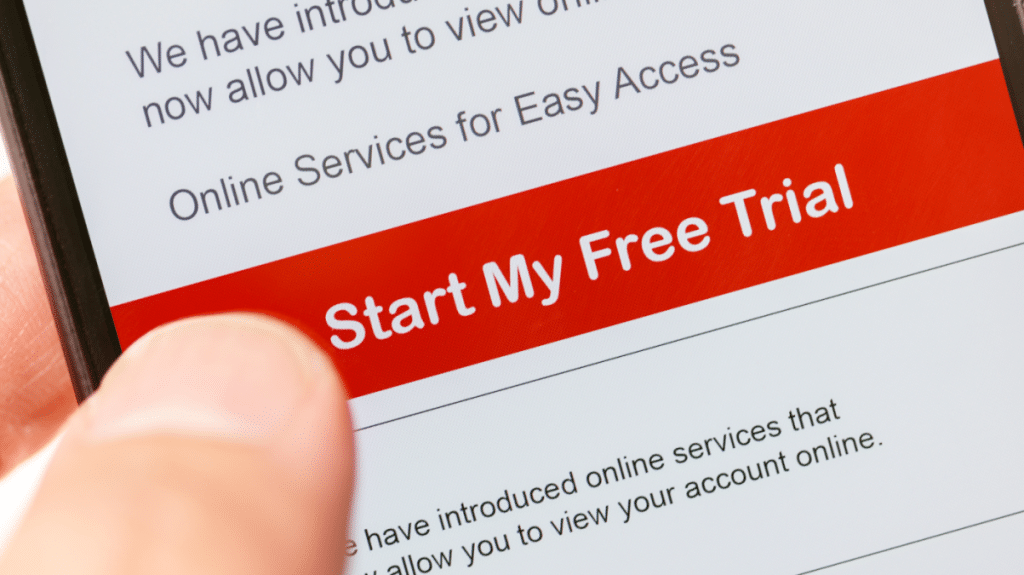Selecting the right tools for a business can be challenging, especially with so many software and service options available. Making the wrong choice can lead to wasted money, inefficiencies, and frustration. That’s where free trials come in. Many companies offer trial periods that allow businesses to test products before committing to a purchase.
From project management software to professional networking services like LinkedIn Premium, free trials give businesses the opportunity to evaluate features, functionality, and overall usability. This guide explores the importance of free trials and how they help companies make informed decisions when choosing new tools.
1. Why Free Trials Matter for Businesses
Reducing Financial Risk
Investing in business software or services without testing them first can be risky. Free trials allow businesses to try out a product without financial commitment. This helps companies avoid unnecessary expenses on tools that don’t meet their needs.
Ensuring Compatibility with Business Needs
Every business has unique requirements. Some tools may be feature-rich but not user-friendly, while others may lack essential functions. A free trial provides an opportunity to determine whether the software aligns with business goals and workflows.
Testing Customer Support and Reliability
Customer support is an important factor when choosing a business tool. During a free trial, companies can evaluate how responsive and helpful the customer service team is. They can also assess whether the tool has frequent downtimes or technical issues.
2. How Free Trials Help Businesses Make Informed Decisions
Assessing Ease of Use
Not all business tools are easy to use. Some require extensive training, while others have intuitive interfaces. A free trial allows employees to explore the platform and determine whether it’s easy to navigate and use efficiently.
Evaluating Core Features
A tool might look great on paper, but does it deliver on its promises? Free trials allow businesses to test essential features in real-world scenarios. This helps decision-makers determine whether the tool offers the functionality they need.
For example, when testing LinkedIn Premium, businesses can explore advanced search features, InMail messaging, and analytics to decide if the upgrade is worth it for networking and recruitment.
Comparing Multiple Tools Side by Side
Free trials make it easier to compare different software options before making a final decision. Instead of relying on marketing materials, businesses can test each tool’s strengths and weaknesses in real time.
3. Common Business Tools That Offer Free Trials
1. Project Management Software
- Trello, Asana, and Monday.com offer free trials, allowing businesses to test collaboration and task management features.
2. CRM (Customer Relationship Management) Software
- Platforms like HubSpot and Salesforce provide free trials, helping businesses assess automation, reporting, and customer engagement tools.
3. Marketing and SEO Tools
- SEMrush, Ahrefs, and Moz offer trial periods for businesses to analyze keyword research, competitor analysis, and SEO strategies.
4. Professional Networking Services
- LinkedIn Premium provides a free trial, allowing businesses to explore job postings, networking tools, and lead generation features.
5. Accounting and Finance Software
- QuickBooks, FreshBooks, and Xero offer free trials so businesses can test invoicing, expense tracking, and financial reporting features.

4. How to Make the Most of a Free Trial
Set Clear Objectives
Before starting a free trial, businesses should define what they need from the tool. Identifying key features to test ensures the trial period is used effectively.
Involve Key Team Members
Since different employees may use the software differently, involving relevant team members in the testing process provides a well-rounded evaluation.
Test Integration with Existing Systems
A great tool should integrate seamlessly with other software the company uses. Testing compatibility during the free trial can prevent future technical issues.
Track Performance and User Feedback
Businesses should document their experiences with the tool, noting usability, efficiency, and any problems encountered. Gathering feedback from employees ensures all concerns are considered before making a purchase.
5. Limitations of Free Trials
Restricted Features
Some free trials offer only limited functionality, preventing businesses from testing the full potential of the software. It’s important to check whether the trial includes all essential features.
Short Trial Periods
Many free trials last only a few days or weeks, which may not be enough time for a thorough evaluation. Businesses should maximize the trial period by testing the most critical features first.
Automatic Subscription Renewal
Some free trials require credit card information and automatically charge users after the trial period ends. Companies should be aware of cancellation policies to avoid unexpected charges.
6. Making the Final Decision
After completing a free trial, businesses should compare the tested tools based on:
1. Features and functionality
2. Ease of use and employee feedback
3. Integration with existing systems
4. Customer support quality
5. Overall cost and value
If a tool meets all business needs, it may be worth investing in. Otherwise, exploring alternative options or negotiating a better deal with the provider can help businesses find the best solution.
Conclusion: Why Free Trials Are Essential for Businesses
Free trials give businesses the opportunity to test tools before committing to a purchase, reducing financial risk and ensuring compatibility with business needs. Whether evaluating project management software, CRM tools, or professional networking services like LinkedIn Premium, free trials help businesses make informed decisions.
